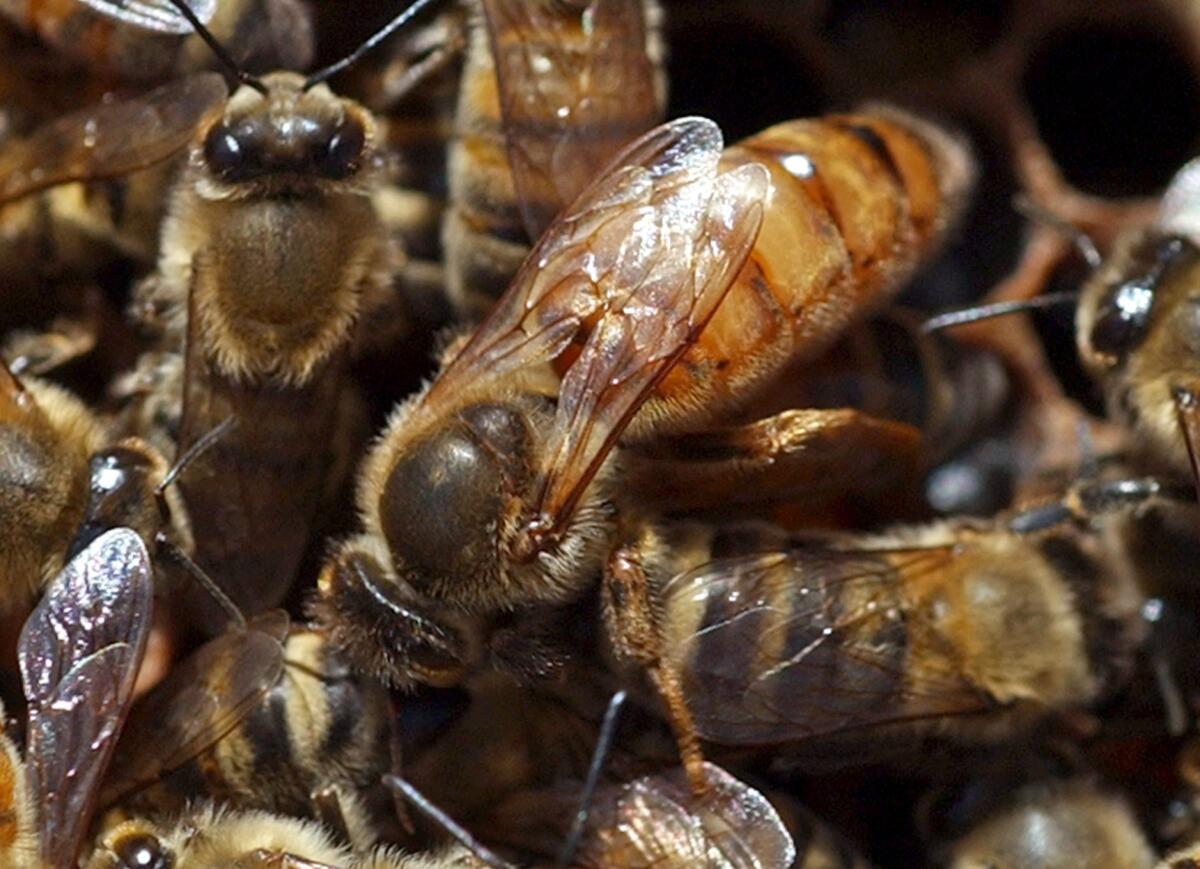A hive heist: Nearly 100 beehives stolen from Northern California field

- Share via
Nearly 100 beehives, each holding more than 50,000 bees, have gone missing in Northern California, officials said.
Mike Potts, a beekeeper and owner of Oregon-based Pottsy’s Pollination and Honey Farm, discovered Friday that 92 of his hives had disappeared from a holding area in Yuba City. The hives are used to pollinate almond orchards.
Potts thinks the beehives were stolen by other beekeepers, possibly from elsewhere in Sutter County, whose own hives had likely experienced a colony collapse.
Over the last 10 years, Potts said that beehive thefts have become more common as disease has increasingly killed the insects. Last year, he said, about 400 beehives were stolen from a neighboring field.
His theory is that the hives were swiped during the night, loaded into the back of a truck and hauled to another destination. Potts’ pallet boxes and any other evidence linking the bees to his supply were likely burned, he said. Sutter County authorities are investigating the theft.
“We work hard enough all year to keep them alive. Then one guy comes around and steals them,” Potts said.
The theft will incur a $44,000 revenue loss, but insurance will help pay for some of that, the beekeeper said, and he’s already covered his clients in Oregon, Washington and elsewhere in California.
The larger issue, though, is the repopulation of the bees.
It takes about a year for a hive to grow to full capacity, Potts said. As bees face external threats from mite infestation, beekeepers must constantly adapt to changes and work diligently to protect their hives.
“If you’re a good beekeeper, you do that,” he said. “If you’re not, you go steal them.”
Potts said he doesn’t expect the stolen hives to be recovered. Even if they are, he believes they would be damaged.
For now, he’s focused on preventing other hives from being taken. He plans to add GPS trackers to the hives, placing them inside frames that the bees will use. The tracking devices will monitor any movement of the hives and alert Potts to any unwanted activity.
More to Read
Sign up for Essential California
The most important California stories and recommendations in your inbox every morning.
You may occasionally receive promotional content from the Los Angeles Times.













